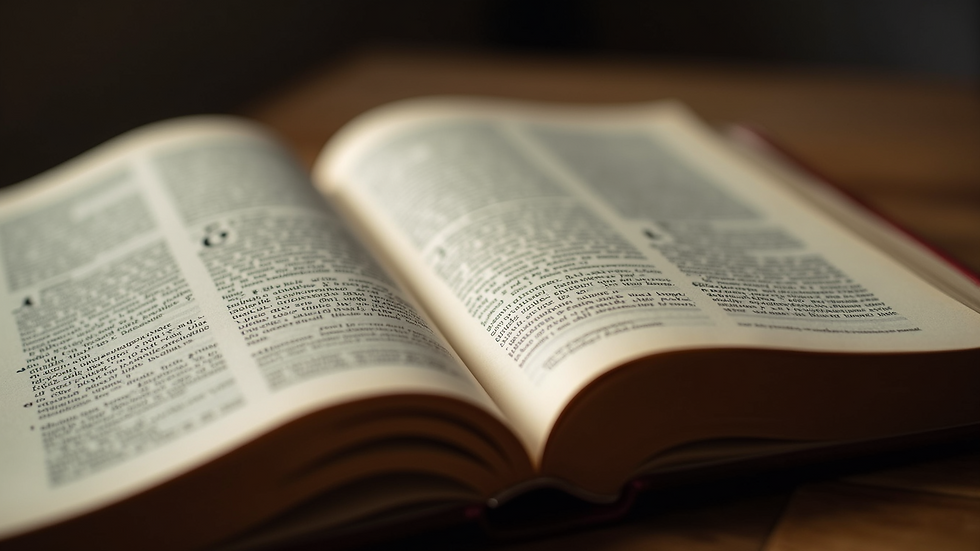Uncovering the Enigmatic Legacy of Timeless Novelists
- Apr 11, 2025
- 3 min read
Literature opens a door into human experiences, with novelists as key architects of this fascinating world. Their stories shape our views on life, culture, and morality. In this post, we'll explore some of the most impactful novelists in history and see how their works have left a lasting imprint on literature.
The Enduring Influence of William Shakespeare
William Shakespeare stands out as one of the greatest playwrights and novelists ever. His works, featuring complex characters and intricate plots, dive deeply into human emotions. Novels and plays like "Hamlet," "Macbeth," and "Romeo and Juliet" touch on universal themes such as love, jealousy, betrayal, and ambition. His ability to capture these timeless themes allows readers from different backgrounds and eras to connect with his characters.
Shakespeare's influence extends far beyond his lifetime. For example, his plays have inspired over 1,000 film adaptations, demonstrating their lasting appeal. His storytelling techniques range from tragedy to comedy, and these diverse styles secure his legacy as a literary titan for generations to come.

Leo Tolstoy: The Master of Realism
Leo Tolstoy is another monumental figure in literature. His novels, particularly "War and Peace" and "Anna Karenina," redefine storytelling with their commitment to realism. These works explore the complexities of human relationships and the flow of life, embodying the chaos and beauty of existence.
For instance, "War and Peace" is not just a novel; it’s a detailed examination of society during the Napoleonic era, covering 1,200 characters and multiple storylines that reflect human struggles. Tolstoy presents well-rounded characters who grapple with moral dilemmas, encouraging readers to think deeply about the issues at hand. His writing resonates with readers, encouraging them to reflect on their own lives and choices.
Jane Austen: The Pioneer of Feminine Literature
Turning to women in literature, Jane Austen shines as a pioneering novelist of the 19th century. Through her sharp wit and keen social commentary, she reveals the intricacies of class, family, and love in works like "Pride and Prejudice" and "Sense and Sensibility."
Austen’s narratives delve into women's roles and societal expectations during her time. For example, in "Pride and Prejudice," the protagonist, Elizabeth Bennet, navigates her desire for independence while facing societal pressure to marry. This exploration of self-discovery continues to resonate with modern readers, particularly women, emphasizing personal growth and empowerment.
Gabriel García Márquez: The Magical Realist
Gabriel García Márquez transformed literature with his captivating blend of reality and magic, particularly in "One Hundred Years of Solitude" and "Love in the Time of Cholera." As a leader in the magical realism genre, Márquez weaves together the ordinary with the extraordinary, providing a rich tapestry that challenges conventional storytelling.
In "One Hundred Years of Solitude," the Buendía family experiences triumphs and tragedies that unfold in a world where magic and reality coexist. This style draws readers into a mesmerizing narrative filled with deeper themes of nostalgia, solitude, and human nature. Márquez's work inspires authors to push the limits of how they depict reality in their own stories.
The Impact of Timeless Novelists
The influences of these celebrated authors shape the literary landscape we enjoy today. From Shakespeare's tragic narratives to Tolstoy's exploration of social dynamics, each has enriched our understanding of storytelling.
Reading their works reveals layers of meaning and connection that enhance our shared human experience. Reflecting on the legacies of these literary giants broadens our appreciation of literature and encourages us to think about our own narratives and the world around us.



Comments